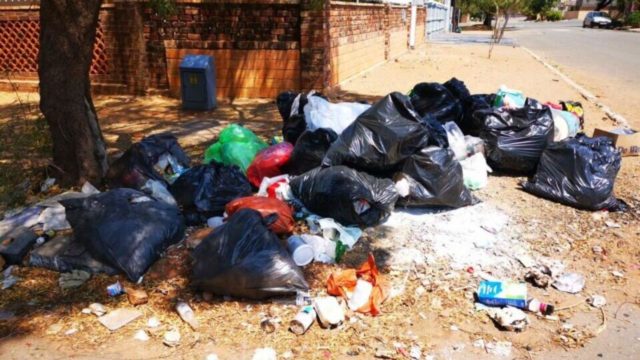City human rights activist willing to escalate the matter to the Constitutional Court
THE SA Human Rights Commission (SAHRC) is investigating numerous complaints that were lodged regarding “non-existent service delivery” at Sol Plaatje Municipality.
SAHRC provincial manager Chantelle Williams said on Monday that the complaints, dating back to April 2020, were under investigation.
“The complaints include sewage in Roodepan, water shortages and housing issues in informal settlements,” said Williams.
She said that individual complaints relating to the same service delivery issue, such as water shortages, were consolidated into one investigation.
“It normally takes 180 days to complete an investigation, depending upon the nature of the complaint and the time it takes for the respondent to provide feedback and respond to the allegations.”
Williams explained that once an investigation was finalised, options taken to resolve the matter included litigation if the respondent did not offer any co-operation.
“A public inquiry can also be opened where the respondent is subpoenaed to provide further information. Once all information has been obtained, an investigation report is drawn up with recommendations.”
Human rights activist Katlego Chibamba said that he was willing to escalate the matter to the Constitutional Court if necessary, after lodging a complaint with the SAHRC on behalf of Sol Plaatje Municipality residents at the beginning of the month.
“There has been a massive outcry from the community regarding the sewage, water and refuse complaints,” said Chibamba.
He believed that the Sol Plaatje municipal manager, as well as the executive mayor, should face criminal charges if the water situation had not drastically improved within the next 30 days.
“The water pipes and system must be renewed and or replaced within the next 30 days. We also demand that qualified residents take over the hiring of service providers, as well as procuring of required material, as well as take over the municipality’s sewage works.”
Chibamba added that the complaint to the SAHRC was based on the large volume of social media groups that were formed on WhatsApp, Facebook and Telegram in reaction to the city’s service delivery woes.
“There are up to 10,000 residents on these groups who are suffering from the effects of poor service delivery.
“If we do not succeed with the SAHRC I will not hesitate to approach the Constitutional Court for relief. Being denied access to water for days on end is a violation of basic human rights.”
He added that while there were “feeble attempts” by the municipality to repair the city, residents were not convinced.
“It appears as if action is only taken in response to a backlash from the community.”
Chibamba said that he was investigating whether the quality of the city’s water could have contributed to the death of an infant.
“A resident recently lost her child after contracting gastroenteritis. We fear the possibility of a cholera outbreak.”
He indicated that Sol Plaatje Municipality had failed to protect and uphold the basic human rights of its residents, especially during the national lockdown.
“The community only has sporadic access to unpurified, dirty water. This has been an ongoing issue that has led to a number of people buying bottled water. Unfortunately, poor households cannot afford this luxury.”
Chibamba pointed out that Covid-19 regulations, with respect to hand washing, could not be followed because of the regular water cuts that were imposed by the municipality, along with the provision of “filthy” water.
“The water shedding that takes place runs over several days per year, which is against fundamental human rights.”
He said that the municipal district had the highest rate of unemployment in the country, where the majority depended on social grants.
“The health implication of ingesting poor quality water has been very detrimental, where a number of people have complained about having gastroenteritis as well as runny stomachs caused by bacteria that could be coming from the dirty water.”
He added that the municipality failed to maintain its drainage systems.
“There are drainage systems in and around the communities that have not been attended to in a number of years. These have become a health hazard, not only polluting the air but also attracting insects, vermin, flies and bacteria that are harmful and toxic to the human body.”
Chibamba said that the uncollected refuse, especially on rainy days, resulted in illegal dumping, which also created a breeding ground for bacteria, flies and vermin.
“This is a violation of the right to live in a clean and healthy environment.”








